The Latest from TechCrunch
The Latest from TechCrunch |  |
- Big News: Google Starts Rolling Out Paid Android Apps Support In More Countries
- TechCrunch Disrupt LIVE Webcast, Day One (TCTV)
- Where Buys LocalGinger To Gain Location-Based Social Commerce Know-How
- Meet Grig. He’s Going To Help You Win A Samsung Galaxy S Phone
- IBM Buys Data Center Switching Company BLADE Network Technologies
- The List Of Startups Launching At TechCrunch Disrupt
- CrunchGear Reviews The 2010 Range Rover Supercharged [Video]
- Microsoft Upgrades Bing iPhone App With New Travel, Maps Features
- OneHourTranslation Launches A Quick Translation Plug-in For Drupal Along With API
- Intent-Based Advertising Network Permuto Raises $10 Million, Rebrands As Buysight
- Facial Recognition Tech Startup Face.com Raises $4.3M From Yandex And Others
- European LinkedIn Rival XING Hits 10 Million Users
- Mindflash Releases Online Training Software To The Public
- Microsoft Promises You’ll Use Your Phone Less With Windows Phone 7
- iStreamer: A Unique, Timeline-based App For Watching The Social Stream
- The Huge Value Sequoia Capital And Other Venture Capitalists Help Create
- Video: Sharp Announces 5.5-Inch And 10.8-inch Android Tablets
- Textbook Rental Juggernaut Chegg Adds Another $75 Million To Its Coffers
- Dave McClure’s First Investment In China: ChinaNetCloud (TCTV)
- Entrepreneur Boy Band Cover Flow To Play Disrupt After Party
- Google Celebrates Their Last Pre-Teen Birthday With A Pretty Cake Logo
- Offline/Online Convergence, Mobile Commerce, and Life After Check-ins
- AngelGate: Chris Sacca Responds To Ron Conway
- TC Hackathon Alum GroupMe Hits 1 Million Texts, Adds Sponsored Groups
- WiseDame Wins The TechCrunch Disrupt Hackathon, A Black Box For Real Life
| Big News: Google Starts Rolling Out Paid Android Apps Support In More Countries Posted: 27 Sep 2010 09:07 AM PDT
Just before the weekend, Google dropped word to developers that paid Android apps support was on its way to more countries than the 14 currently supported. In the email, the company did not specify a timing other than “over the next few weeks” and stopped short of saying which markets would be gaining support for paid apps. Now app store analytics company Distimo tells us they’ve noticed paid apps targeting previously unsupported countries have effectively starting to make their way to Android Market. So far, the startup has identified 12 ‘new’ countries: Argentina, Belgium, Brazil, Finland, Hong Kong, Israel, Mexico, Poland, Romania, Russia, Slovakia and South Africa. Other reports suggests Sweden and Hungary are two other countries that are starting to see paid apps support. If all this checks out, Google will be at least (and at last) doubling the amount of countries where users can purchase Android apps, which is nothing short of great news for many a developer. This greatly expands their reach – even if this is only a start – and will most definitely reduce the gigantic proportion of free-only apps currently in the application store. Here’s the email sent out before the weekend:
We’ve contacted Google to see what’s up and hope to provide more details soon. For now, if you’re an Android user based in any of the countries put in bold above, let us know if you can find paid applications in Android Market, and if you’re effectively able to purchase them already. |
| TechCrunch Disrupt LIVE Webcast, Day One (TCTV) Posted: 27 Sep 2010 08:47 AM PDT Standby in 3 – 2 – 1: We are now live from San Francisco with TechCrunch Disrupt. If you can’t make the conference in person, you can still watch all the great panels, fireside chats, product launches, and the Startup Battlefield, plus a few surprises on TechCrunch TV. We’ll be webcasting the entire 3-day event and showing you all the action on the main stage. The guest list reads like a who’s who in Silicon Valley and the world of entrepreneurs. Plus, during the breaks we’ll have special backstage interviews and take you on a walking tour of Startup Alley. TechCrunch Disrupt will not get taken over by AngelGate according to Michael Arrington. But we do have 2 key players lined up this morning – Ron Conway and Dave McClure. Certainly not to be missed. The show kicks off with John Doerr (KPC&B), Mark Pincus (Zynga), Bing Gordon (KPC&B) on building internet treasures. Here’s a look at the complete star-studded agenda. Tech specs: We’ll have 7 cameras feeding into 2 Tricasters, live webcasting via Ustream, on demand video archives via Ooyala and tweet-able transcripts from SpeakerText. Use Twitter hashtag #TCdisrupt. And here’s the venue on Foursquare. If you’d like to help build up the mountain of coverage we’re making here, be sure to tag all your tweets, posts, photos, and so on with #tcdisrupt. That tag’s stream tends to show up onstage a lot. We’ll update this post with links to deeper coverage of the panels, startups, and other developments at the show, so refresh often. If you’re here, then enjoy the show. If you’re not here — enjoy the show. |
| Where Buys LocalGinger To Gain Location-Based Social Commerce Know-How Posted: 27 Sep 2010 07:53 AM PDT
Location-based media company Where has acquired LocalGinger, which operates a daily deal / group buying service with the same name. LocalGinger focuses on secondary markets for its social commerce activities, which it says has allowed it to build a strong following in select cities. So why is Where buying the privately-held flash commerce startup? In a nutshell, to ramp up its advertising products. The company says its WHERE Ads platform enables it to reach 50 million people, and by integrating LocalGinger local businesses will be able to use tools to create offers and drive real-time commerce at a hyper-local level. Said Walt Doyle, CEO of Where:
Terms of the acquisition were not disclosed. Where, which competes with the likes of Loopt and Foursquare, has raised $18.5 million in funding to date, from investors such as Venrock and Kodiak Venture Partners. It has attracted 3 million active users so far, according to its About page. |
| Meet Grig. He’s Going To Help You Win A Samsung Galaxy S Phone Posted: 27 Sep 2010 07:24 AM PDT
|
| IBM Buys Data Center Switching Company BLADE Network Technologies Posted: 27 Sep 2010 06:56 AM PDT  IBM today announced it has entered into a definitive agreement to acquire BLADE Network Technologies, a privately held data center switching company based in Santa Clara, California. Financial terms were not disclosed. BLADE, founded in 2006, specializes in software and devices that route data and transactions to and from servers; the company provides blade server and top-of-rack switches as well as software to virtualize and manage cloud computing and other workloads. IBM today announced it has entered into a definitive agreement to acquire BLADE Network Technologies, a privately held data center switching company based in Santa Clara, California. Financial terms were not disclosed. BLADE, founded in 2006, specializes in software and devices that route data and transactions to and from servers; the company provides blade server and top-of-rack switches as well as software to virtualize and manage cloud computing and other workloads. |
| The List Of Startups Launching At TechCrunch Disrupt Posted: 27 Sep 2010 06:55 AM PDT
These startups will battle it out over three intense days, with one of these companies eventually taking home $50,000 and the official Disrupt trophy. Badgeville: Badgeville uses game mechanics to increase engagement on publisher and new sites. Checkpoints: Checkpoints is a mobile shopping tool that allows users to check-in to retail locations and accrue points to buy real world products. CloudFlare: CloudFlare develops performance and security tools previously reserved only for the Internet giants, and makes them available for any site on the web. Credit Sesame: Credit Sesame is a personal finance tool that allows users to save money on their mortgage and loans by unlocking their credit potential. DataSift: Datasift allows developers and companies to aggregate and filter content from Twitter on a per project basis. GameCrush:GameCrush is social gaming site that allows users to meet, match and pay to play online games with other users to enhance their gaming experience. Gifi: Developed by social payments platform Venmo, Gifi integrates with Foursquare allows users to let friends to unlock gifts of money when they check-in to venues. Gild: Gild provides unique tools to job seekers to certify your technology skills, find jobs, and track employment progress. Gripe: Gripe is a free location-aware mobile app that uses people's online clout to help them get complaints about any of the 100 million+ local businesses or service providers worldwide. Gunzoo: Gunzoo changes the way you search videos, images and more. Lark: LARK is a silent waking system that uses an iPhone app and vibration technology to wake you silently and naturally. Namesake: Namesake is a social community that aims to connect people around professional opportunities and jobs. OneTrueFan: OneTrueFan is a browser addon and service that enables users to see who else has viewed and shared the pages they read on publisher sites. Opzi: Opzi has created a Quora-like Q&A site for the enterprise to make corporate knowledge more accessible. Pinger: Pinger develops TextFree, a massively popular free texting application. Qwiki: Qwiki produces an "information experience" in response to user queries, by combining on-the-fly infographics, video, narration, and interactive elements to describe people, places and things. SeqCentral: SeqCentral aims to help human genome scientists collaborate and put data in the cloud. Shwowp: Shwowp is a tool to help you take control of your shopping history: organize it, share it and track how you influence others. Snapdragon: Snapdragon uses smartphone barcode readers to turn interactions with products into entertainment. Storify: Storify allows you to collect photos, video, Tweets and more and then publish them as simple stories that can be embedded anywhere. Sumazi: Sumazi is an intelligent connection engine and network for professionals that introduces you to the people you don’t know but should. Superfly: Superfly is like Mint for travel, and collects and analyzes your travel patterns, offer ways to save, and more. Tello: Tello provides a way for consumers to quickly provide businesses with direct feedback on their customer service experiences via their mobile phone. ToVieFor: ToVieFor is discount shopping site for handbags and accessories that allows a member to choose the price he or she wants to pay for a particular product. Voxy: Voxy is a mobile language-learning game that converts relevant real-world content into fun, addictive and customizable language lessons |
| CrunchGear Reviews The 2010 Range Rover Supercharged [Video] Posted: 27 Sep 2010 06:32 AM PDT The Range Rover is an icon, perched above its peers as the sexiest offroad/onroad SUV on the market. But does performance match its looks? We were handed a 2010 Range Rover Supercharged and put it to the test for an entire week, enjoying off-road trails and river fording, rallying around old farm paths and traversing an autocross course. We already covered the gadgetry earlier and this is what we have to say about the rest. Spoiler: It is a true sport utility vehicle. |
| Microsoft Upgrades Bing iPhone App With New Travel, Maps Features Posted: 27 Sep 2010 06:29 AM PDT
Microsoft has released an updated Bing for Mobile iPhone and iPod Touch app. The updated app brings with it new features for the mobile versions of Bing Travel and Maps. For the former service, you can now go to the ‘Travel’ tab from your iPhone or iPod touch’s browser and find deals from your home airport and special promotions. Using the interactive Deals calendar, you can see when good prices are available. Also new is flight search, which lets you look up fares and flight times and utilize the Price Predictor Bing provides to desktop users to know when users would be best of to buy their airfares. The app also comes with a Bing Travel flight status feature to enable users to check if their flight is on time when on the go.
In addition, Microsoft says it has completely redesigned the mapping experience from the ground up for the upgraded mobile app. That means a bigger font size corresponding to larger roads, added neighborhood labels so one can easily identify and convey locations in cities and easy switching between map and list view. The backdrop was also enhanced, which means information on the map such as traffic details, business listings, pushpins, labels, etc. could “pop”. Also new in Maps for Bing for Mobile iPhone and iPod touch: ‘What's Nearby’ with enhanced map and labels so you can "fly" through a neighborhood and quickly find a local listing.
Last time Bing for Mobile had gotten an update was last June, when the app got social search and visual scanning features. |
| OneHourTranslation Launches A Quick Translation Plug-in For Drupal Along With API Posted: 27 Sep 2010 06:02 AM PDT
Fast forward to today. The service costs $ 0.07 per word and there are a number of languages available. The service works by contacting a network of thousands of freelance translators who are vetted by a community process and then allowed to pick and choose the jobs they want to take. It is, in fact, like having your own translator on staff. We last talked about the company’s TwitTrans service but now they’ve created a number of CMS plugins including services for Drupal (WordPress is coming soon) as well as an API so you can build your own apps. Essentially this injects a translation project into the service and returns the translation once its done. This allows you to quickly and easily translate blog posts on the fly or even translate an entire website as it is updated, all in an amazingly short time. Translation can get expensive, but it is a sight better than hiring a single person to do all the translation an suffer from the vagaries of their schedule and willingness to work. The service is also hiring translators so if you speak Beothuk or Crimean Gothic you may be in demand. Sadly, at least for this audience, there is no current need for Klingon or Tolkeinien Elvish translators. UPDATE – The guys at OneHourTranslation are offering 50 words for free. Use coupon code ‘TC50′ |
| Intent-Based Advertising Network Permuto Raises $10 Million, Rebrands As Buysight Posted: 27 Sep 2010 05:57 AM PDT
Buysight’s ad-serving technology captures the intent of what shoppers are looking for on search engines, shopping engines and more and then serves them highly targeted advertisements while they are browsing the web. And Buysight promises to deliver these intent-based ads in realtime. For example, if you are searching for a particular type of shoe on a search engine, you could be served with an ad for the brand of shoes or a similar shoe on a publisher site that has partnered with Buysight. Buysight purchases the index of consumer intent search data from search engines and partners with retailers to serve intent-driven ads on publisher sites. The startup says that its network reaches 65 million people monthly and includes hundreds of advertisers, and thousands of publishers. As co-founder Shaukat Shamim tells me, Buysight is about turning data into insight for retailers. For publishers, Buysight will serve highly targeted ads to visitors, promising a better experience for any website visitor. |
| Facial Recognition Tech Startup Face.com Raises $4.3M From Yandex And Others Posted: 27 Sep 2010 04:58 AM PDT
Yandex, operator of Russia’s largest search engine, has invested in Tel-Aviv based facial recognition technology startup Face.com, marking its first investment in an Israeli company. In total, Face.com has raised $4.3 million in Series B funding in a round led by previous investor Rhodium. The news was first reported by TheMarker (in Hebrew) but we’ve confirmed the news with a Yandex representative, who declined to say how much it is investing in the startup. Yandex did say they and Face.com are working on a “large joint project”, but failed to specify what that initiative entails exactly. Finally, Yandex CEO Arkady Volozh has joined the startup’s board of directors. Face.com, founded in 2007, has developed a number of face recognition apps for Facebook (PhotoTagger and Photo Finder; the latter is currently in private alpha mode). Last May, the company said its technology had helped users scan over 7 billion photos, and moved to launch a developer community and open API, providing third-party devs access to their core facial recognition technology. One of the startup’s closest competitors, Polar Rose, was reportedly acquired by Apple for about $29 million. Update: statement from Face.com founder and CEO Gil Hirsh:
|
| European LinkedIn Rival XING Hits 10 Million Users Posted: 27 Sep 2010 04:26 AM PDT  XING, the European social network for business professionals, has recently passed the ten million registered user mark (even if it still advertises 9 million members on its main website). The publicly-listed company says the second quarter of this year proved to be XING's most successful period of member growth in the last 15 months. XING, the European social network for business professionals, has recently passed the ten million registered user mark (even if it still advertises 9 million members on its main website). The publicly-listed company says the second quarter of this year proved to be XING's most successful period of member growth in the last 15 months. |
| Mindflash Releases Online Training Software To The Public Posted: 27 Sep 2010 04:00 AM PDT
Mindflash.com is a portal small businesses can use to train employees. Geared towards non-technical users, Mindflash allows participants to upload and share training documents or videos on the web. They can even include quizzes and games to test employees' comprehension of the content. The platform then manages the entire training management process – from sending training invitations to tracking employees' progress to producing real-time progress reports. Mindflash aims to replace tools like PowerPoint to train employees remotely, and adds analytics to the mix so employers can ensure that employees are completing online training seminars. Over 2,000 small businesses requested early access to Mindflash during the six-month private beta period. For example, College Hunks Hauling Junk launched a training program for 50 franchises run by college kids across the country in just two weeks. Mindflash CEO Donna Wells (who was Mint’s former CMO) says that the software is particularly helpful for companies who have mobile employees. Pricing plans start at just $79 per month for up to 20 trainees. |
| Microsoft Promises You’ll Use Your Phone Less With Windows Phone 7 Posted: 27 Sep 2010 03:16 AM PDT
Windows Phone 7 is obviously the most exciting thing to come out of Redmond in a while and to suggest it is so simple that you barely have to use your phone is to misunderestimate the user base for these things. The first users will use these phones until their fingers bleed and only after a bit of coaxing will people who don't want to use phones start using WinPho. I'd suspect those users already have Android phones or, barring that, some mix of Blackberry/iPhone usage in their lives, so it will be an even tougher slog for WinPho. Generally, Microsoft would be better off suggesting that you can launch nuclear missiles with your phone than suggest that Blackberry users are inconsiderate shilly–shalliers. |
| iStreamer: A Unique, Timeline-based App For Watching The Social Stream Posted: 27 Sep 2010 03:02 AM PDT
The app costs $4 and is available today on the iTunes store. A lite version will follow that allows you to open only one feed at a time. |
| The Huge Value Sequoia Capital And Other Venture Capitalists Help Create Posted: 27 Sep 2010 12:08 AM PDT
As part of that conversation I asked about some of the big exits that Sequoia-backed startups have enjoyed over the last couple of years. After naming a few I became more curious and asked for more data. Sequoia supplied it, and the dollar amounts are…really large. I looked at the current value of Sequioa-backed companies that IPO’d in the last two years, and the acquisition value of the companies that were acquired. The total? Over $12 billion:
Of course this isn’t the total amount of money Sequoia made from these deals since they only owned a percentage of each one. And when I told Sequoia I wanted to write about this they quite rightly pointed out that it’s the entrepreneurs, not Sequoia, that should get the credit. But at least some credit goes to Sequoia for at least picking the right entrepreneurs and helping them along the way. What Sequoia and other venture capital investors are doing to create huge value is clear. We’ll discuss this more on stage tomorrow. Note: Some of these companies are based in Asia and I had to do some heavy estimating on their market caps, but I went with the lower estimates in each case. If you note any errors please point them out. |
| Video: Sharp Announces 5.5-Inch And 10.8-inch Android Tablets Posted: 27 Sep 2010 12:05 AM PDT  It took them a while, but now it seems Sharp is serious about entering the e-book and tablet business. The company announced "Galapagos"in Tokyo today [press release in English], with Galapagos being the (terrible) name both for Sharp's cloud-based e-book service and two new Android devices supporting that service. Read the rest on CrunchGear. It took them a while, but now it seems Sharp is serious about entering the e-book and tablet business. The company announced "Galapagos"in Tokyo today [press release in English], with Galapagos being the (terrible) name both for Sharp's cloud-based e-book service and two new Android devices supporting that service. Read the rest on CrunchGear. |
| Textbook Rental Juggernaut Chegg Adds Another $75 Million To Its Coffers Posted: 26 Sep 2010 11:51 PM PDT
Textbook rental juggernaut Chegg raised another $75 million from a Hong Kong investment firm called Ace Limited. This new round, which is a series E, brings the total capital put into Chegg so far to $219 million. The company raised its last round of $57 million just last November. Chegg rents textbooks to college students, which is a capital-intensive business, requiring warehouses, keeping massive inventory, logistics, and shipping. As Chegg grows, so does its need for capital. But the more it scales, the harder it becomes for others to compete. Chegg CEO Dan Rosensweig will be speaking at Disrupt tomorrow, where I will ask him what he plans to do with so much capital. Chegg’s main competitive advantage comes from buying textbooks at wholesale, managing its warehouses, and its customer service. All of that takes a lot of money. But Chegg has found a sweet spot in that it is disrupting the quasi-monopolistic pricing for both used and new textbooks at college bookstores. Here is a detailed analysis of Chegg’s business model that we ran earlier this summer. |
| Dave McClure’s First Investment In China: ChinaNetCloud (TCTV) Posted: 26 Sep 2010 11:13 PM PDT This guest post is by Dave McClure, founder of 500 Startups and GeeksOnaPlane. As we wrap up our GeeksOnaPlane video series for TechCrunch TV, I thought I’d offer a perspective on Asia from the eyes of a Silicon Valley geek and investor (not to mention the father of two Japanese-American kids). For those aren’t familiar with what GeeksOnaPlane (aka “GoaP”) is all about, we bring geeks and investors from Silicon Valley and elsewhere to geeky locations all around the globe. We talk/ meet/ socialize to understand more about technology, entrepreneurship, and new markets through travel and cultural exchange. To learn more, visit our website and blog and meet the 100+ folks who have traveled with us to Asia in 2009 and 2010, and Europe in 2009, or see any of the thousands of photos, tweets, and other social media created while we visited 10+ countries in the last 2 years. I am extremely optimistic about tech entrepreneurship around the world, and in particular in the emerging powerhouse economies of Asia. My new fund 500 Startups is only a few months old, and yet we have already made 8 investments outside the US (4 in Europe, 4 in Asia). Earlier this year, on a trip to Japan I made an investment in MyGengo.com, which provides a crowdsourcing platform and API for language translation. Over the spring & summer, we made several other investments in Europe after meeting companies last year in London at SeedCamp. And our most recent deal happened just this past Thursday, and is our first portfolio company in China — ChinaNetCloud out of Shanghai. ChinaNetCloud is a unique company — although most of our investments are in software or internet companies, this our first investment in a China cloud computing & managed services provider. Run by Silicon Valley veteran co-founders James Eron and Steve Mushero, CNC was founded in 2008 in Shanghai China. The company solves two key problems in China: the severe lack of trained system administrators and the lack of flexible cloud computing. CNC customers are mostly Chinese Internet companies across all industry verticals, and also include global companies coming into China, as well as Chinese Internet/game companies going out to the US via Facebook, Japan via Mixi, and other sites in Asia. I’ve known Steve for over 10 years, and he’s been in China since 2007. We caught up last year during our GeeksOnaPlane trip in 2009, and I heard him speak about the tremendous growth CNC is seeing from internet startups across China and East Asia. This year when we met again, we (500 Startups) decided we couldn’t pass up the opportunity to learn more about the exploding Chinese internet market, and by investing in CNC we are also investing in that growth. And we’re looking forward to CNC as a stepping stone to do more in Asia and China in coming years. In the 4th and final episode of our 2010 GeeksOnaPlane East Asia trip from earlier this summer, we wrap up our trip in Singapore for the Echelon startup conference. There I spoke about the Lean Startup movement coming out of Silicon Valley, changes in venture capital and angel investing, and with other emerging internet entrepreneurship communities around the world. In our trips this year to China, Korea, Singapore, and Japan we realize more and more how closely we are connected to the billions of people online around the world, both in our social lives and our business lives, we are inextricably connected to the World Wide Web. In closing, along with our video is also a photo essay of our trip to Asia by our fellow GoaP member Kris Krug. Kris tells his story in both words and pictures and you won’t want to miss a thing: While in Asia the geeks got a chance to attend many conferences and This is Kris Krüg’s third time attending a GOAP event, having Here is a photographic recap of Geeks on a Plane Asia 2010: The GOAP crew was invited to a special tour of the US pavilion at the Micro-documentary filmmaker Ben Henretig catches some The final leg of the GOAP journey took the geeks all the way to Tokyo! GOAP Portraits: the geeks enjoy the country pavilions at the Shanghai Geeks from GOAP being interviewed during the CHINICT conference in At every dinner table during the GOAP Asia 2010 tour, there was always GOAP portraits: Geeks on planes, eating dinner and in the kitchen. GOAP Geek Ken Brady poses outside a building at the A round-table dinner of sharing entrees was often the setting for most The Tokyo neighborhood of Harajuku is a world of fashion that is colorful and GOAP portraits: geeks sleeping on a plane, geek kung-fu master on the GOAP geek Paul Papadimitriou gave a talk during the Geeks love good food! The diversity of food presentation was often a During the Beijing leg of the trip, the geeks got a true lesson from a GOAP portraits: geeks, geeks, geeks everywhere! Not a geek from the GOAP tour but a definitely tired vistor takes a GOAP founder Dave McClure plus other GOAP geeks talk on a panel during Road signs directing us to South korea! GOAP portraits: Dave McClure fast pitching US Secretary of State Dave McClure and Christine Lu share a geeky CEO of Creative Commons Joi Ito takes a minute for a GOAP GOAP Geek Paul Papadimitriou poses between two large statues in South Korea. GOAP Portraits: Dave McClure; the entire GOAP crew in Beijing; and Laurie Deneschuk The GOAP crew had a chance to take a tour of the Demilitarized Zone while in Dave McClure throw some fingers up with the guys from Foound while at the Echelon 2010 Conference in GOAP Geek Jing Zhou outside in the hillside GOAP Portraits: GOAP Geek – Francine Hardaway; the This neat little device, called the SOULR PRO WOWee ONE, is a amplifying device that can turn GOAP organizer Christine Lu takes a minute with her iPhone. Static Photography photographer Kris Krüg speaks at the Ignite GOAP Portraits: Ben Henretig, Kaiser Kuo and Mikkel Thagaard. The whole GOAP crew in Shanghai, China. Kris Krüg and his resident teacher take a minute to have some fun on Geeks on a Plane definitely accomplished bringing geeks from all over Many geeks, many planes, one trip and lots of fun! For more information: Photography Trip to Shanghai, Beijing, Seoul & Singapore Photo Geeks ReThink: Hawaii Entrepreneurship, Technology & |
| Entrepreneur Boy Band Cover Flow To Play Disrupt After Party Posted: 26 Sep 2010 10:28 PM PDT
If you are just learning this now now, don’t fret. There’s still opportunity to familiarize yourselves with the smooth stylings of entrepreneur side-project Cover Flow (there’s nothing dorkier than being named after an iTunes interface). The nerd fivesome met each other through “business” according to Kaplan, and mostly play songs from the ’80s and ’90s, with some Lady Gaga mixed in. Really. Kaplan tells TechCrunch that band’s pretty nervous about playing the Media Temple Disrupt Party tomorrow night at Manor West, especially when going up against the star power of MC Hammer at the Google Ventures/SV Angel party on Tuesday, in a battle to win over the ears, hearts and minds of Silicon Valley. “The investors in the group keep trying to collude every time we get together to rehearse, but we’ve managed to run through the set a few times uninterrupted and it sounds great.” Perhaps the only band whose members correspond to Crunchbase profiles, here they are playing Nirvana’s “Smells Like Teen Spirit” below. |
| Google Celebrates Their Last Pre-Teen Birthday With A Pretty Cake Logo Posted: 26 Sep 2010 10:17 PM PDT
The topic of Google’s birthday is always a little tricky. The company was incorporated on September 4, 1998, the first technical spec is from September 20, 1998, and the first employee was hired on September 21, 1998 (Craig Silverstein — a fellow grad student with Sergey and Larry at Stanford). And yet, the search giant seems to prefer to celebrate their birthday today, on September 27 (which it is on the East coast of the U.S. right now). Well, it’s their birthday, and they can celebrate when they want to — and that’s apparently exactly what they started doing in 2005. And they are today with a new doodle logo by Wayne Thiebaud, an American painter often associated with the “Pop Art” movement. For Google’s 12th birthday today, he painted them a nice cake. For more history of Google (at least up to their tenth birthday) check out this page. As they approach their teenage years, the giant shows no signs of slowing down — quite literally. This year saw the launch of both “Caffeine” (their fresher, faster search results) and Google Instant. For much of their life, Google has basically dominated search, and their market share speaks to that. But Microsoft Bing has been proving to be a worthy competitor in recent years, so let’s hope puberty doesn’t make things awkward for Google. Happy birthday, Google. |
| Offline/Online Convergence, Mobile Commerce, and Life After Check-ins Posted: 26 Sep 2010 07:42 PM PDT For years, offline merchants have been acquiring data about you in attempts to personalize your experience through loyalty and rewards cards, credit card data, and surveys. But the problem is these interactions occur after it’s too late: at the point of sale. You've already checked out and are leaving the store, or have ordered dinner. For a merchant to convince you to add an extra item to your shopping cart, or buy an appetizer with your meal, the interaction must happen sooner. Online check-ins, as a trend and use-case, have created a remarkably compelling opportunity for offline merchants to interact with consumers who are in the store before the sale happens. When you announce you're at a store or restaurant by checking into Foursquare or Facebook Places, for example, your experience can be shaped and molded in compelling ways. This is precisely why check-ins are incredibly powerful—they give the offline merchants an opportunity to shape your behavior before you buy or consume. Unfortunately, check-ins alone provide little value to merchants in the absence of contextual data about you. And checking into a place definitely does not equate to liking it. Imagine how many restaurants you visit, then consciously decide to never return to. Without a feedback loop this context will be used erroneously for future offers and recommendations. The real power in converged online/offline interactions will come from a hybrid of realtime contextual offers, deals, and advertisements which can change a consumer's behavior long before any transaction occurs. Recommendations and offers that take into account nearly everything about you as an individual. This is a why Steve Jobs strategically entered mobile advertising with iAd. Contrary to what Carol Bartz thinks, Apple is thinking way beyond serving brand advertisements within mobile apps. The real potential is about blending offline and online data about you as a person, data that can be transferred across services and devices. iAd is absolutely a secret weapon for Apple to ultimately leverage its micro-payments franchise to influence you at the point of sale. But they could work not just while you're mobile, but at home as well. Imagine watching rich immersive ads on your Apple TV, which are tailored based on your offline behavior while your iPhone simultaneously knows what channel you're watching and gives you a click-to-act offer or saves a deal which you can unlock later. And though Google bought Admob for a simpler reason (to own mobile/online display), it's clear that their success with Android and momentum with Google TV is driving them toward similar ambitions. There's simply no doubt that the offline and online worlds are melding in a way where "ads" will incorporate your presence and behavior across the entire web. Obviously the use of apps and web services on your mobile phone will be the source of a lot of this data. But because apps don't use cookies like traditional websites do, proprietary layers of data are becoming silo'd inside these individual services and applications. This is one fundamental reason why you see so many mash-ups and "data threesomes" happening between services these days – there is incredible power in blending silo’d data across web services. For example, say Foursquare reaches beyond check-ins with a recommendation service, while also providing curated offers by tapping into the API of a group buying service. Then imagine this combined data mash-up accessing the API of a mobile payments service like Square to provide not only a discount, but also an integrated loyalty or reward at the point of sale. You get a recommended list of restaurants, check-in with your friends, trigger a context-aware offer, then immediately get a discount and reward when you pay. This is the future. And ultimately, this creates massive opportunities for companies to enter the fray with great ideas and leverage APIs from other services. Many will end up as commodity layers, but it’s likely that those which play the greatest role in shaping purchasing intent will benefit tremendously from this massive online/offline convergence and acceleration of mobile commerce. And these trends likely form the underlying strategy for why Facebook is building a mobile phone. They want to become a participant, not just a layer or service, in how this offline/online commerce plays out. This week’s announcement that Target will sell Facebook credit gift cards is another telling sign of Facebook’s ambitions. That’s why it’s funny when people see Facebook’s push into phones as a basic play to make phones more social. Dan Lyons wrote a silly Newsweek article this week about Facebook not innovating. I believe innovation is alive and well right now, and is likely accelerating. And Facebook's push into mobile is much more profound than making phones more social – Facebook believes owning elements of the mobile stack will help it leverage its vast social graph to influence offline/online commerce. And though companies like Facebook and Apple are salivating at the opportunities in this offline/online convergence, so are many startups. TechCrunch Disrupt will undoubtedly mark the arrival of some amazing new startups which are poised to take advantage of these trends as well. We’re on a new frontier of mobile commerce and life after check-ins looks pretty good from where I’m standing. _________________________ Contributor Steve Cheney is an entrepreneur and formerly an engineer & programmer specializing in web and mobile technologies. [photo: flickr/Darshy] |
| AngelGate: Chris Sacca Responds To Ron Conway Posted: 26 Sep 2010 05:55 PM PDT
As I said the other day, there would be more private emails getting published. This one is from Chris Sacca, a prominent “super angel” who was not at the meeting I stumbled into but was at a previous meeting. He wrote a response to the Ron Conway email. It’s worth pointing out that this email is time stamped a good half hour before our story broke, meaning he wrote it thinking it would all still stay private. This is also the first leaked email we’ve received that actually includes names in the header of some of the people who are involved in this mess. Presumably these were the people Ron Conway emailed, but the header was stripped out of that email when we received it. Like the Ron Conway email, we have separately confirmed this email is authentic, although Sacca will not comment on it. I’ve removed one sentence from the email that was highly sensitive. Nothing that material to the overall message, but it was very personal and not appropriate to print publicly. The email:
|
| TC Hackathon Alum GroupMe Hits 1 Million Texts, Adds Sponsored Groups Posted: 26 Sep 2010 02:59 PM PDT Born from the cradle of Disrupt’s NY Hackathon, GroupMe is turning the codefest into something of a company tradition. The startup, which officially launched in August and recently raised $850,000 from a few prominent investors, took the stage on Sunday at the San Francisco Design Center to pitch their latest hack in 60 seconds or less. GroupMe is a service for private groups based around SMS. To sign up, you go to their website, punch in your cell phone number and your name. Once GroupMe assigns a unique mobile number (a pretty instantaneous process), you can invite anyone with a mobile to join your group. From there you can chat via SMS as a group, organize a conference call, and discuss certain topics. According to co-founder, Scott Martocci (formerly of Gilt Groupe), demand has been healthy, with GroupMe hitting its 1 millionth text message on Friday. Unlike Flymodo, another notable Hackathon alum, the founders of GroupMe didn’t launch an entirely new product on Sunday, instead they created a feature for GroupMe: suggested reminders and sponsored groups. Through “sponsored groups,” corporations and organizations can sign-up to create/sponsor event or theme centric groups, like music festivals, sporting events or even television shows. Once a user sign up for a sponsored group, he will be able to access suggested reminders (created by the organization/company). TechCrunch’s Disrupt will be GroupMe’s first first guinea pig. If you sign up for the Disrupt group, you can sign up to get reminders on events like the Super Angel/VC debate, Google CEO Eric Schmidt’s session or Barry Diller’s fireside chat. Martocci says the team (now a crew of five plus one intern) will be closely monitoring how Disrupt attendees are using the service and making tweaks along the way. You can access the Disrupt’s sponsored group here. While it may not seem like an earth shattering feature for GroupMe, such a B2C friendly app certainly presents a critical monetization opportunity for the young startup. |
| WiseDame Wins The TechCrunch Disrupt Hackathon, A Black Box For Real Life Posted: 26 Sep 2010 02:01 PM PDT This weekend, 450 or so developers descended upon the San Francisco Design Center to hack. The result? Some really cool/interesting/crazy stuff being made at our TechCrunch Disrupt Hackathon. On Sunday, it was time to present before our selection of judges: Cyan Bannister, Brett Bullington, Rebekah Cox, Chris Dixon, Bradley Horowitz, Dean Hovey, Michael Marquez, Christopher Poole, Joshua Schachter, and Mike Schroepfer. After 86 60-second presentations on stage, the judges went backstage to pick the ones they felt put their time to best use last night (and/or gave the best presentation on little or no sleep). The overall winner was WiseDame, an app that allows you to easily let people you care about know where you are. For example, perhaps you told your parents that you would be home at a certain time, but you’re going to be late for some reason, you’ll get a notification to let them know why. Perhaps your phone battery is dying and you’ll be forced off the grid — you can also send out a message to let someone know this so they don’t freak out when they can’t reach you. This app was developed with women in mind — specifically, J’aime Ohm, the sole developer, viewed it as a “black box” recorder like they have in planes, but for real life. But you can easily see this idea being applicable in a lot of ways. (See our video with J’aime above.) Congrats to WiseDame — they’ll get some time to present during TechCrunch Disrupt, which begins tomorrow.
Below, the full list of Hackathon awards winners: Honorable mentions — ezetop, PitchHero, Potweet, Ostrich, Display ^ N, Pinnokio, Netflix Theater Best Demo – Active Hackers Best Business Model — GreenZone Funniest — Drinkerator Creepiest – D8Coach Top Prize — WiseDame Thanks to everyone who participated in this year’s Hackathon. We’ll have full videos of each winning presentation up later tonight.
|
| You are subscribed to email updates from TechCrunch To stop receiving these emails, you may unsubscribe now. | Email delivery powered by Google |
| Google Inc., 20 West Kinzie, Chicago IL USA 60610 | |




 We are only a few hours away from kicking off the second
We are only a few hours away from kicking off the second 







 Online training software startup
Online training software startup  As we all know, early adopters hate pulling out their phones. They would, quite honestly, prefer to leave their phones safely ensconced in little leather holsters on their belts, glancing at them only once or twice during the day and spending the rest of the time riding tandem bicycles with loved ones and eating delicate smoked cheeses. This is, it seems, the message
As we all know, early adopters hate pulling out their phones. They would, quite honestly, prefer to leave their phones safely ensconced in little leather holsters on their belts, glancing at them only once or twice during the day and spending the rest of the time riding tandem bicycles with loved ones and eating delicate smoked cheeses. This is, it seems, the message 
 Last week I sat down with Sequoia Capital partner
Last week I sat down with Sequoia Capital partner 





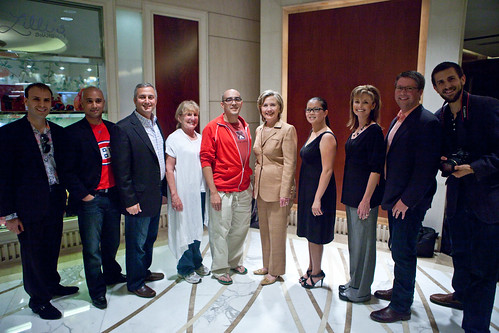



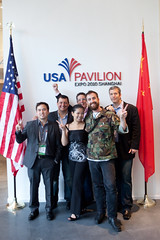


























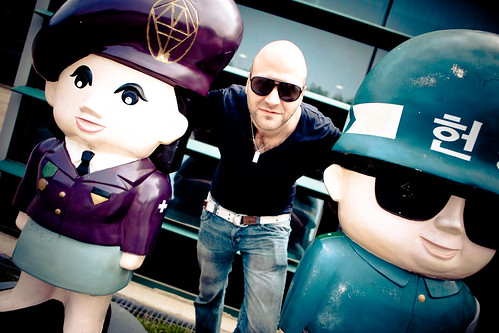




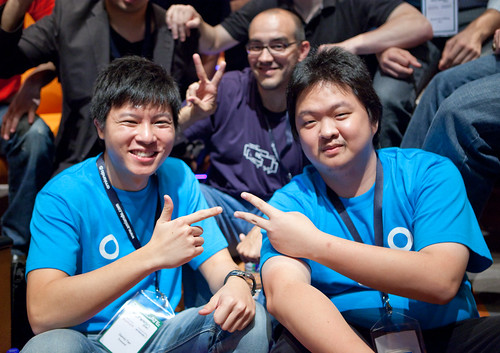










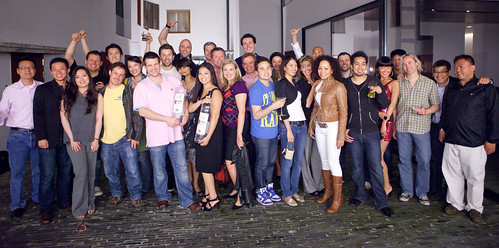

 Many of you may know
Many of you may know 


 Quick summary of “AngelGate” to date:
Quick summary of “AngelGate” to date:








